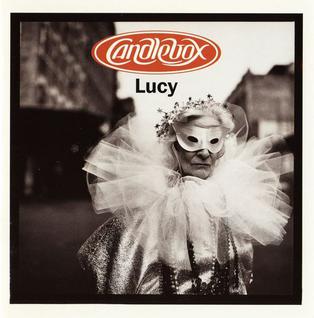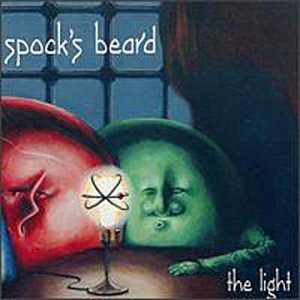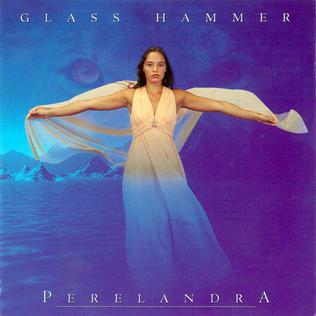Finally moving on from 1990, this is the first of two Retro Review articles I plan on dedicating to 1995, as it turns out there's quite a bit I wanted to catch up on. This one will feature a quartet of rock bands, one of which I haven't really listened to before (sorta)! Here's what I've been checking out lately!
Candlebox - Lucy
When I reviewed this band's debut album, I found it to be some pretty decent, if standard, grunge rock for the era, but it was enough to break them out. This album follows up by going for a bit of a harsher, darker feel, and yet they sound more like Pearl Jam than ever!
Once again, this feels like the right album to come out in 1995, where grunge was becoming much more familiar, so bands needed to really push themselves to stand out. Here, Candlebox aims for something more atmospheric in their alternative angst, like a series of a short, trance-like journeys. Once the song starts, it generally locks into that groove and doesn't change much other than adding or taking away layers for verses and choruses. Kevin Martin's wailing is right in the flow, fitting with the grooves and tones very well, and it's easy to get lost in these songs. Unfortunately, that also means that the album tends to drone on, especially the two "Butterfly" songs. As it turns out, this one didn't do as well as their first, and I wonder if this is why.
That doesn't mean there aren't some stand outs. They made singles out of "Simple Lessons," "Best Friend," and "Understanding," and those were probably the best choices. "Bothered" did have some chunky riffs though, and it was much more aggressive than the rest. Otherwise, it feels like more standard grunge again, and with the darker tone, perhaps not as strong as their debut. While the album is decent for what it is, it's certainly hard to recommend unless you have strong nostalgia for this era of rock music.
AC/DC - Ballbreaker
After the massive success that was The Razors Edge (and a quick little single for a Schwarzenegger film), it took them five years to put together another album, bringing back Phil Rudd on drums. They decided to bring in Rick Rubin as the producer this time, after working with him on "Big Gun," making sure that this album is business as usual for the band.
I know I've mentioned this before, but reviewing AC/DC albums can be rough. Their style is so distilled and direct that, unless there's some major mistake, their albums end up being generally fine. While I don't think this is as good as the one that came before, they continue with their bluesy brand of hard rock. "Hard as a Rock" kicks things off with some solid, mid-tempo rocking, "Boogieman" has a good 6/8 blues groove, and "Hail Caesar" is an interesting piece of social satire. Many of these songs often have a build-up in intensity toward the end, making them pretty anthemic. They're also an uptick in the raunchy lyrics, but with an album title like that, I suppose it's not a surprise.
So once again, we have another decent chunk of hard rock from a band who has long since mastered their craft and were (and still are, honestly) content to keep trucking along, album to album. This album doesn't have the iconic tracks like their others, but at the same time, it sticks to what works, and that isn't a bad thing.
Spock's Beard - The Light
While I've heard a song or two, most of what I know about Spock's Beard is the one Pattern-Seeking Animals album I reviewed. (Apparently, they have five albums now! When did that happen?) Anyways, this legendary third-wave prog rock band started with the Morse brothers, Alan (guitars) and Neal (vocals, keyboards). It was originally just supposed to be the two of them, but by the time they got recording, they had picked up Dave Meros on bass and Nick D'Virgilio on drums. The result is some pretty iconic third-wave prog rock, even if it is maybe trying a little too hard.
The album starts with "The Light," which has been the band's signature song since it came out, and I can see why. It's a very dramatic piece with a lot of changes, including one that's full-on Latin fusion. Dream Theater's influence is notable, though Spock's Beard is certainly not metal, but the songwriting of shifting between sections does have that feel. In fact, these sudden transitions is pretty consistent through the album. As a result, it does make it a rather unpredictable listen, but at the same time, I do wonder if it isn't too much. They have plenty of neat little ideas, but instead of giving any of them time to expand, it's off to the next section. I think I would have liked to hear them explore these ideas more, but I suppose this isn't that kind of band, and they do have some neat little callbacks. The big epic "The Water" is much the same way, going over 23 minutes and several genres and styles. However, it does come together like a Pink Floyd song, featuring a small choir of female singers to croon and wail along. "On the Edge" is probably the most consistent song, but it is also only 6 minutes long, the shortest on this four-song album.
It's definitely an interesting collection of music, taking the prog rock that inspires them and making it relevant in a later decade, and I think they sorta make it work. Again, I am bugged by the constant transitions (I wonder if this is where Haken gets it from), but that could be a matter of taste. The material is performed well by all members, and establishes a solid baseline to build on from here for more prog rock adventures.
Glass Hammer - Perelandra
I checked out this band's first album a few years ago, and while it may have had some peculiar synths, it had some decent songs about Aragorn's adventures around Middle-Earth. Two years later, they come back with another album, now about the works of C.S. Lewis (which I admit I am not as familiar with). This time, they draw upon a wider prog palette, making them more in line with their third-wave peers like Spock's Beard and The Flower Kings.
Right off, the synths are better, and I think the production, while still not perfect, has improved as well, making these songs sound very lush and Yes-like at times. This is most apparent in their first full song (after the strange intro track) "Time Marches On." I felt there was a significant increase in Wakeman-like synth runs and Squire-like basslines compared to the previous album. Of course, their ELP influence is still around, mainly on the instrumental pieces like "Felix the Cat" and the title track. The rest of the album is a little all-over-the-place, but it all flows pretty well. "That Hideous Strength" is probably the biggest jump in style, with it's near-industrial vibes, making me think of Pink Floyd at its darkest. I have to say the keyboard work is probably the highlight, though I have no idea which parts are by Fred Schendel or Steve Babb, as I understand they're both jamming on the synths along with all the other instruments they play.
This is quite the improvement over Journey of the Dunadan, largely because it feels more consistent, though I do think the shorter tracks are a bit odd. "Time Marches Out" is a great starter, and "Heaven" serves as a solid closer, getting rather triumphant after the defeat of evil in the previous tracks. While I don't know if they've reached any kind of peak with this album, I can definitely hear them starting to put the pieces together to become their own thing, and look forward to when I can take the time to listen to more of their work.






:format(jpeg):mode_rgb():quality(90)/discogs-images/R-13693258-1559154556-1679.jpeg.jpg)
